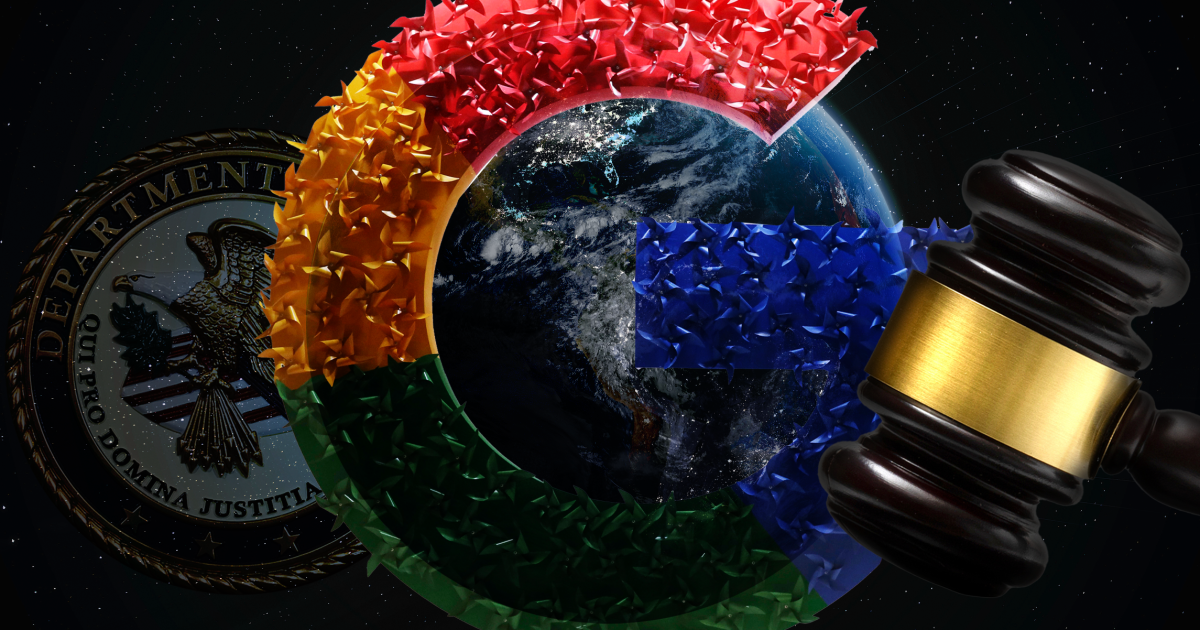

The Department of Justice and 11 state attorneys general are pursuing an antitrust case against online search giant Google. Filed in 2020, the trial began last month before Judge Amit P. Mehta in the U.S. District Court for the Eastern District of Virginia.
The case focuses on Google’s search engine, which has an almost 90% market share of general search. The DOJ alleges that Google uses its dominance to suppress competition in search and search-related advertising illegally. Specifically, the DOJ alleges that Google uses exclusionary contracts to tie up important channels to distribute search engines and makes deals with wireless carriers and smartphone makers so that Google Search is the default or exclusive option for users.
DISTRICT OF CRIME: WASHINGTON STRUGGLES TO SHAKE OFF WAVE THAT ROSE WITH PANDEMIC
Google counters that its high market share stems from the superiority of its product and that the contracts for preloading benefit consumers and are easily avoided with a few clicks to change search defaults.
The DOJ explains in its complaint that because every search yields important data used to improve its search product, Google’s exclusive contracts with smartphone makers and others produce an anti-competitive effect that bars would-be competitors from becoming a true threat. Google points out that those contracts make for an improved product for consumers and likely offset the cost of smartphones.
That the government’s suit is focused more on the plight of Google competitors and less on consequences for consumers reflects a broad shift in competition philosophy in the Biden administration, both at the DOJ and the Federal Trade Commission. The agencies are trying to shift American antitrust law away from the “consumer welfare standard” that’s guided enforcement for more than 40 years in the United States. That principle held that as long as consumers weren’t being disadvantaged by higher prices, lower output, or a lack of innovation, the business practices in question were likely not illegal.
The Biden administration has instead adopted a legal philosophy more concerned with the size of companies, their market share, and the interests of competitor firms, among other broader societal goals. A similar legal perspective is driving the FTC’s case against retail giant Amazon.
Google’s response to the lawsuit reflects an emphasis on the consumer welfare approach. President of Global Affairs Ken Walker wrote, “Our engineers work to offer the best search engine possible, making thousands of improvements every year so that we deliver the most helpful results, for free.” He added, “People don’t use Google because they have to — they use it because they want to.” The same blog post goes on to show how it takes consumers four clicks to change the default search engine on Safari mobile, where Google search is preloaded on iPhones, iPads, and Mac desktops.
But the new line of antitrust thinking concerned with sheer size is revealed by those who support the DOJ’s efforts. A coalition of more than 20 advocacy groups, including Friends of the Earth and Public Citizen, launched the website USvGoogle.org, where they state that “Google is one of the most dangerous corporations in the world” and express concerns about the company’s size and scope.
CLICK HERE TO READ MORE FROM THE WASHINGTON EXAMINER
Mehta’s ruling in the Google case may indicate a larger willingness or resistance within the judiciary to support the change in emphasis in antitrust law. Recent efforts by the FTC to enshrine the new approach in legal precedent have mostly failed in court with unsuccessful challenges to large tech mergers, including Microsoft’s acquisition of video game maker Activision Blizzard and Facebook parent Meta’s purchase of fitness app maker Within. The DOJ is hoping for a different result outside the merger space. That could set a precedent for success going forward for the FTC’s and DOJ’s plans for much stricter and different antitrust enforcement.
If the court rules for the DOJ in the Google search case, the remedies could include a breakup of the company, a prohibition on contracts with phone manufacturers and browser makers, or other measures. The trial is set to conclude in mid-November, with a ruling from Mehta expected next year.





